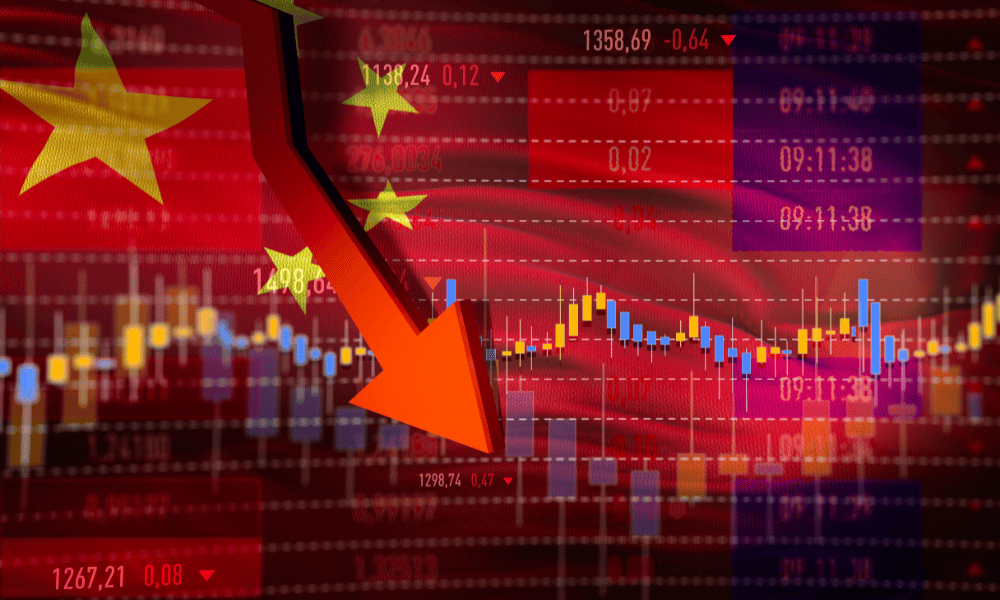
BEIJING — Analysts say that geopolitics have more power over foreign businesses in China than do new Chinese rules.
National security is a growing concern for the country. On July 1, two new laws went into force. One was about espionage, and the other was about foreign relations. They have vague terms like "state secrets" that can be interpreted in different ways by both local and central officials.
People who want to do business in China may be even more worried after hearing that three foreign consulting firms were raided this year with little explanation.
Jeremy Daum, a senior fellow at Yale Law School's Paul Tsai China Center, said that the law changes themselves don't make it more dangerous for foreign companies to do business in China.
Rather, he said, "the current state of international relations and different political pressures may be causing some businesses to re-evaluate the risks and benefits of doing business in China."
Relations between the U.S. and China have gotten worse over the last few years, even though they have been getting better for decades.
Only this year, when U.S. Secretary of State Antony Blinken went to Beijing, among other places, did high-level talks beyond the presidential level start up again.
"The way things are right now makes it more likely that a regulator or someone in the Chinese government will do something that isn't clear." "That's a risk for U.S. business," said Michael House, a partner at Perkins Coie with offices in Beijing and Washington, D.C.
"And when there isn't a real chance for the two governments to talk about the reason for that action or try to figure out at the government level what's behind those kinds of actions, that's bad for U.S. business," House said.
He said that when it comes to industries, the U.S. and China are worried about high-tech and its links to the military, while other areas are less at risk.
According to an English-language translation on China Law Translate, a website Daum started, the new Espionage Law expands the meaning of "acts of espionage" to include "seeking to align with an espionage organization" and trying to get national security data illegally.
According to the translation, the rule also says that "all levels" of government in China need to teach about and manage security measures.
The website's translation of the Foreign Relations Law says that foreign groups in China "must not endanger China's national security, harm the public interest of society, or undermine society's public order."
Implementation is where there is doubt. News of the laws came as reports of Chinese probes into foreign firms made news from March to May.
According to Reuters, Chinese authorities raided the Beijing office of U.S. corporate due diligence firm Mintz Group, went to the Shanghai office of U.S. consulting firm Bain & Company, and looked into foreign consulting firm Capvision Partners.
Even though there was a general link to national security, it's not clear how deep the investigations went or what exactly led to them. Since then, there have been no more stories of raids like this at big foreign companies.
But the lack of clarity is still a worry for companies.
Michael Hart, the head of the American Chamber of Commerce in China, said that he has talked to Chinese leaders about the corporate raids.
"This is one of the disconnects where we usually hear that as long as you're not doing anything illegal, you have nothing to worry about," Hart said. "But we don't know what these businesses did that was wrong. We keep pushing for more openness."
Blinken and U.S. Treasury Secretary Janet Yellen have both met with U.S. businesses in China during their trips this year.
Companies are also being watched more closely in the U.S. In April, a group from the House of Representatives met with top leaders from tech and media companies in California to talk about business with China.
In the last few years, both the U.S. and Chinese governments have used the phrase "national security" as an excuse for new business rules.
Jens Eskelund, head of the EU Chamber of Commerce in China, said at a meeting in mid-June that the biggest worry for businesses in China is that everything from food to energy is looked at from a security point of view.
"That makes me unsure about where the exact lines are between what falls under security and what we can do as normal businesses," he said.
There are also differences in culture and language that play a role.
Alex Liang, a partner at Anjie & Broad in Beijing, said that the Chinese view of national security is more guarded and focused on their own country, while the U.S. view is more global.
"For example, China usually looks at whether sensitive information gets leaked across the border, while the U.S. usually looks at whether its allies give technology to its rivals and certain target nations," he said.
The role of law and the court system also have completely different statuses in the U.S. and China. Beijing has been trying to improve its law system over the past few years, but there is only one party in charge of the government.
Perkins Coie's House pointed out that since U.S. courts can stop what the enforcement part of the government is doing, a Chinese company could make a legal dispute about national security-driven moves, which is hard for a foreign company to do in China.
He also said that foreign companies in China might want to talk to their local officials more so that they can learn more about what the company does and how it helps the economy.
On Wednesday, China's Ministry of Commerce met with foreign pharmaceutical companies and said that it would hold regular meetings with foreign businesses to help them run. (Source)